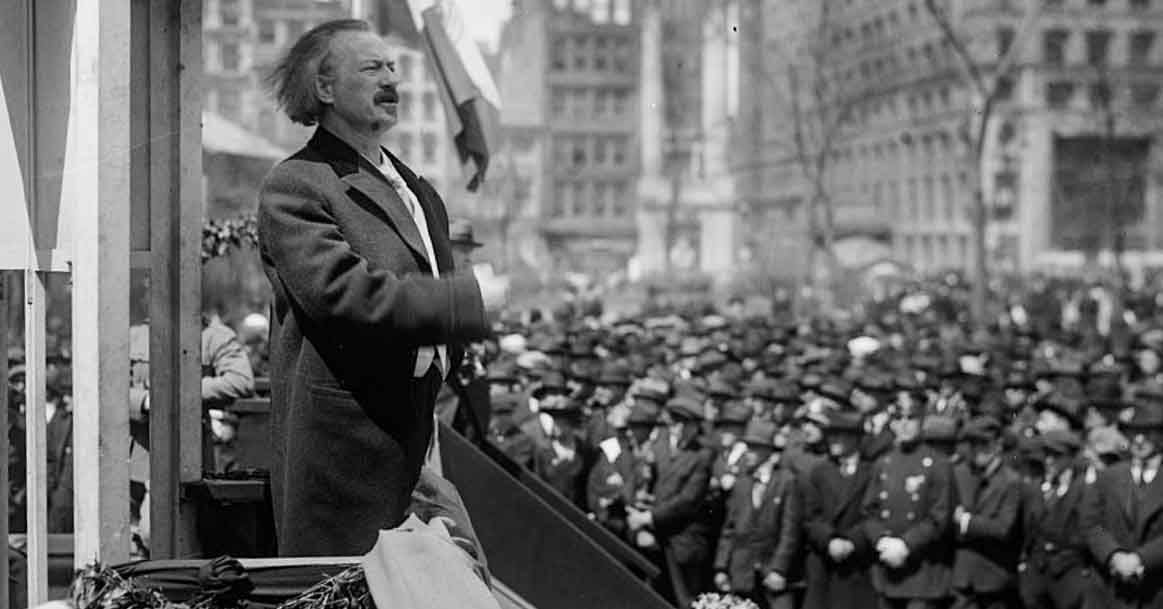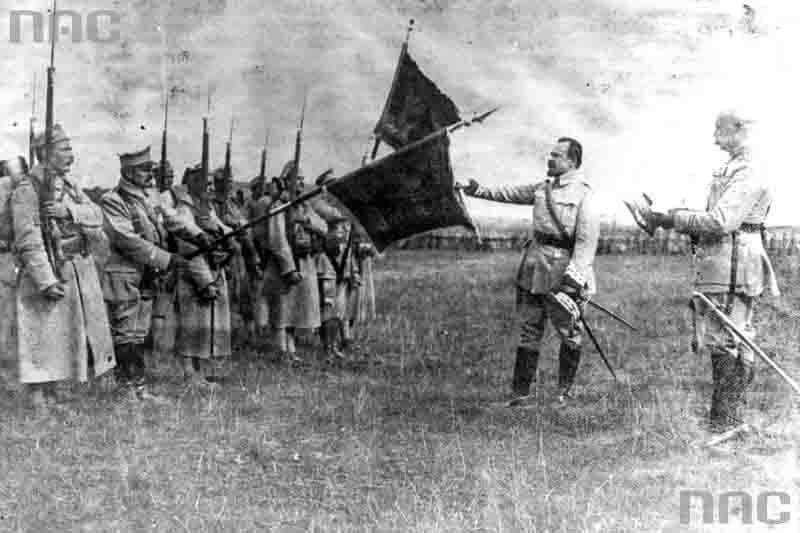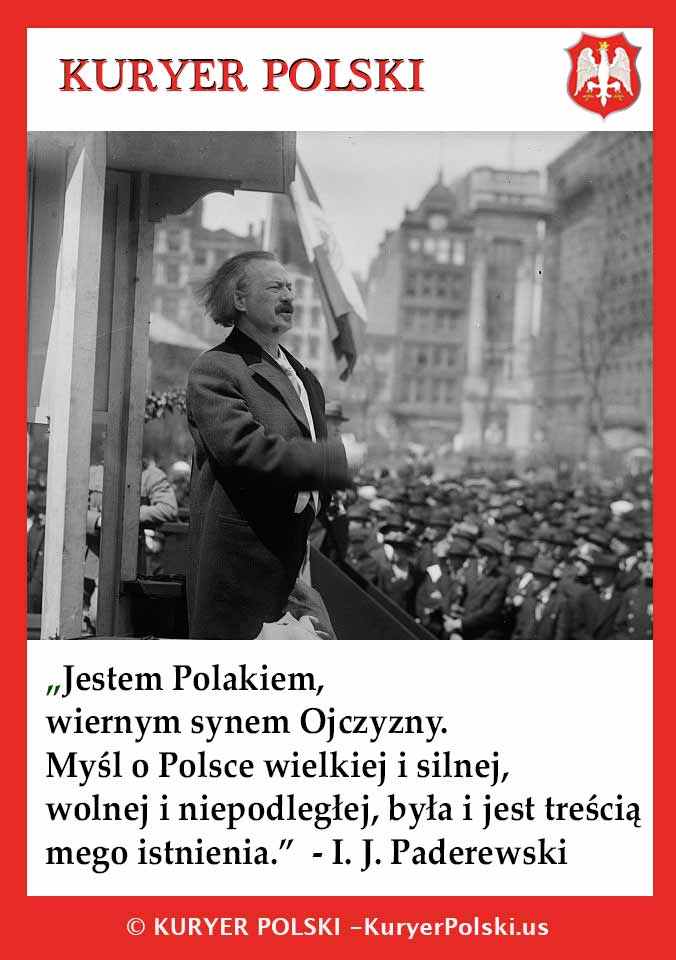I must admit that this text has been in the back of my mind for several years. I have not written it earlier out of concern for the good name of the Polish community in America, of which I am an integral part, but recently some situations just irritate me.

Source: Pixabay
I am a journalist belonging to the Association of Polish Journalists in Warsaw, a columnist for Tygodnik Solidarność (Solidarity Weekly) that has always stood up for the freedom of speech and is the only medium in Poland that lends space to the Polish diaspora. For a year now, I have been the editor-in-chief of a bilingual medium, Kuryer Polski, which is a continuation of the first Polish newspaper in the United States, published in Milwaukee since 1888. In my journalism, since 2012, I have been trying to show the situation in which the Polish diaspora found itself. Polish diaspora that could play a strategic role in the Polish foreign policy. With my own, hard and arduous work, I have earned myself the position of a conservative commentator of the political life in the USA and the Polish diaspora. In my journalism, I usually focus on Polish and American matters, in particular on building pro-Polish lobbying, bilingualism, and the characteristics of the American Polish diaspora. In today's text I would like to take a closer look at our "cunning foxes" (pol. liski chytruski) and their political orientations.
Once, I was in Chicago for the promotion of Prime Minister Morawiecki's film about Poland. I was at a VIP meeting then and I would like to tell you about the situation from that meeting. The titled representatives of the Polish community from Chicago love to meet with each other. They smile happily to one another and tell effusively how much they have done for Poland and for the Polish diaspora. They take a lot of selfies, because important outfits, makeup and hairstyles of the ladies do count. During the meeting, I was introduced as a commentator on the life of the Polish community abroad, and one of the ladies asked me then: "and you publish your opinions in the "Union Journal" (Dziennik Związkowy)? I politely replied that I publish them in other Polish media, and in Tygodnik Solidarność. The lady replied with surprise that she had never heard of me in her life, and yet she was so committed to the Polish community and had done so much for Poland and the Polish diaspora. I was saved from oppression then by prof. Rudnicki, smiling broadly at this Lady, who introduced me to some distinguished doctor...
Well, how is it with the causal agency of the Polish diaspora? Has it not lost itself among the proverbial balls, selfies, and annual meetings? It was from Chicago that as many as 3,000 volunteers of the Blue Army set out to fight for a free Poland, it was where its main banker and Ignacy Paderewski's right hand man — Jan Smulski — worked. It was here that Paderewski thundered at the Polish community, encouraging it to help in regaining independence. It is here, in the nursery of the Polish diaspora, that the charismatic presidents of the Polish American Congress, Karol Rozmarek, Alojzy Mazewski and Edward Moskal, operated. Each of them was received with honors at the White House and each of them played a huge role in the political life of the United States.
We had a huge influence on American politics in the form of Senator Edward Muske, Congressman Klemens Zabłocki, Zbigniew Brzeziński and many others. It was the Polish diaspora in America from 1910 that worked out the text of the memorandum, which Paderewski then presented to President Wilson, and thus, thanks to the Polish diaspora in America, the Polish issue was successfully presented at the Congress of Versailles. It was Edward Moskal who, since 1994, had lobbied with Americans of Polish descent and all friends of Poland to throw a petition signed by 9 million American citizens on the admission of Poland to NATO at the offices of the American administration. It was also Edward Moskal, as the only Pole, who presented the thesis that Poland's admission to the European Union could definitely limit its sovereignty.
Since Poland's accession to the European Union, we can see that the interest in the Polish Diaspora by the Polish government has significantly decreased. Research on the Polish diaspora has been drastically reduced, and the knowledge about it is so insufficient that even politicians hear little about us. As one liberal diplomat from Krakow explained to me, the vectors of foreign policy changed from being interested in diasporas to replacing them with multicultural issues. And it became clear why there is no political cooperation with the Polish diaspora.
As a result of this state of affairs, many local leaders are trying to pursue their own policy, often related to some faction of a given party in Poland. Many activists also conduct their own policy in the economic field. They are often linked to the US economic lobby which is trying to squeeze the most out of the young Polish economy. Thus, under the guise of Polish diaspora activity, the agendas of certain interest groups are being implemented. So, sometimes one gets the impression that the political vectors of Polish diaspora activists do not relate to the Polish raison d'état, but are dictated mostly by political centers in the country on the Vistula River.
In 2015, at the national level, conservative activists were removed from the largest Polish community center. The dividing line then ran between the liberals, and the stumped opposition representing a conservative option. This state of affairs influenced even more the divisions in the Polish community and the further disintegration of the entire Polish community. I was most scared by the statement of one of the Polish community activists, who literally said: "We should not have our own ideas, we should wait for guidelines from Warsaw."
The elections in Poland and the disappointment of the Polish community with the lack of support from Warsaw for the action to defend the Katyn monument (Janusz Sporek, an uncompromising defender of this monument, died last week) and in action 447, led to a further fragmentation of the Polish diaspora in the conservative wing into PiS (Prawo i Sprawiedliwość, English: Law and Order, the governing party in Poland – ed.) supporters and Confederation supporters. I remember when commentators in Poland spoke ill about the Polish diaspora.
The parliamentary elections in 2019 were exceptional. For the first time in history, two parties, i.e. PiS and Confederation, nominated their candidates to the Parliament and the Senate. In the absence of a promotional campaign for the Confederation, most of the candidates had no chance. PiS has put forward one candidate, a well-known Polish community activist from Chicago, prof. Marek Rudnicki, at which point I must admit, I actively joined his campaign.
In the absence of changes in the method of selecting the Polish diaspora candidate, as it is guaranteed for the German minority, the Polish diaspora candidate has lost, fighting in the famous 44 district dominated by left-wing liberals, in which no other candidate has a chance to win against a liberal candidate. For prof. Rudnicki there was no sensible "plan B" in case of a loss, and the whole issue of the 2019 elections to the Senate is a disgrace of the "all-knowing" in Warsaw.
The problems of the Polish community also include huge cultural differences between Americans of Polish origin, who in most cases learn about Poland and Polish politics from the American media, and the new generation of Polish emigration. The lack of knowledge about Poland and Polish political problems is shocking. Most of our "cunning foxes", who sometimes hold positions of responsibility, know nothing about the Three Seas Initiative, the Russian threat, or the Nord Stream issue. They began to find out about it from the bilingual Kuryer Polski. Many of them sent emails with Kuryer articles to their university colleagues.
The fall of Trump caused a further division in the Polish realm. Some conservative activists began to actively engage in local Trump campaigns, shifting their interests from the Polish option to the American option, counting on careers in the future Trump administration. Nothing came of it. In turn, the young, left-liberal Polish diaspora guard, which — instead of wearing pajamas — sleeps in T-shirts with the image of "Che", systematically takes part in campaigns slandering Poland. The spitting on the car carrying President Duda to his meeting at the Consulate in New York is a great illustration of this problem. The Polish diaspora, among the present political class in the United States, ceased to play any significant role.
Joe Biden himself explained it very well in an interview in the New York Times, where he said undiplomatically, that the American Polonia had already played its part and that this was time for young people educated in Marxist universities. The time of those who go to church and promote Karol Wojtyla's teachings is over. This is the view of the left-leaning liberal circles that have long been fighting against conservative values. The cup of bitterness is overflowing with the issue of the age of activists who play their part on the supervisory boards of various Polish diaspora projects. For some of them, the world stopped in the 1970s, hence marketing and social media do not exist for them. They are proud that their chosen ones, directors of these important Polish diaspora projects, do not speak with a strong Polish accent, have no idea about Polishness, and preferably, that the directors of important centers should not come from a Polish culture-forming group.
As a reminder, all the culture-forming Poles who created the foundations of the Polish institutions: organizations, media, foundations, spoke English with a strong Polish accent. Promoting those who do not speak with an accent or often know absolutely nothing about Poland, Polish culture, or the history of the Polish diaspora, is only an escape into ignorance, because you cannot promote something that you do not know anything about.
The Orchard Lake Center, that's burning itself out, is an excellent example of the supervisory board's oversight of its collapse over the past decades. It is this endurance, without any action or vision of the future, that leads to the collapse of these flagships of the Polish community. In Panna Maria, Texas, a person of Mexican descent was selected as director of the new Polish center costing $14 million, bypassing an excellent candidate with a doctorate, who was born in Poland.
Finally, one must finally try to explain the well-known problem of verification (Polish: lustracja). It must be said clearly that the American Polonia was a group under the most intense surveillance within the Polish nation. Hundreds of communist agents were active here, disrupting and destabilizing the, broadly considered, life of the Polish diaspora. Emerging ideas for the promotion of Polishness were nipped in the bud. This condition did not end in 1989. I experienced harassment and slander in my own skin about being a "Russian agent". To my surprise, these accusations came out of the conservative camp. It turned out that I do not support some "very patriotic" ideas.
After the victory of the "good change" (Pol: dobra zmiana), among which the Polish community was quite popular at the time, there was much talk about the need to verify Polish activists. Everyone made promises and, finally min. Ziobro applied to the Justice Department for the extradition of Mr. Mazur, who was then involved in the murder of the Polish police chief. What turned out then? That the US Department of Justice refused the Polish minister. Why? It transpired that all these military and civilian agents had long since changed their colors, having been recruited into the services of the Western allies. The reversal of the alliances resulted in a massive recruitment of former communist security officers to the services of the West.
The majority of Polish community activists still maintain the principle of limited trust with relations to their colleagues and this is also a disorganizing factor for the Polish diaspora. It should be added to the whole phenomenon that if someone has a different opinion, he or she will be quickly ostracized by being labeled a "Russian agent".
Conclusions:
- A significant problem of the Polish diaspora in the United States is the lack of leadership at the national and state levels. It is necessary to establish a think tank with a strong program for the school of Polish diaspora leaders, led by the already-recognized leaders of the Polish diaspora from the USA. The essence of bipartisan leadership education is their future political career in the USA. For some time, I have even promoted the [proposed -ed] Paderewski Institute's name as a driving force in building pro-Polish lobbying in the United States.
- The most important thing is to create a strategy for the survival of the Polish diaspora, set goals and outline the scale of their importance. It cannot be the case that an influential "cunning fox" pursues his own goal, which drags the entire Polish community astray.
- Without the ability to set up new projects and support them financially, the Polish diaspora will face a gradual assimilation.
- Without bilingual media, the American Polonia, i.e. 9 million of those who do not speak Polish, have no chance to maintain their identity as a significant ethnic group in the USA.
- It is important to focus on a generational replacement within the Polish diaspora, especially in supervisory boards, thank those who "endure", and look for younger and ambitious activists.
- A significant problem of the Polish diaspora is also closing themselves in their local environment without noticing the significant problems of the Polish diaspora at the national level. The example of Chicago or New York, where the relatively large Polish population has no representatives in the state, city, or other American institutions, clearly shows apathy towards the past. Focusing on your local area without joining in national projects is just another proof of the decline of the Polish Diaspora. Only Polish organizations and bilingual media connected in a dense network have a chance to develop the Polish diaspora and change the image of Poland.
- Warsaw should start financing research on the Polish Diaspora and support, in particular, bilingual media. It should also create priorities important from the point of view of the Polish raison d'état, by creating tools, for example, a framework for connections of the Polish diaspora in such a way as to create a network of connections and cooperation of Polish diaspora media from PAP (Polska Agencja Prasowa, state-owned Polish Press Agency, – ed.) to the smallest portal, from Argentina to Kazakhstan.
- Soon, a new Polish ambassador will appear in Washington — Marek Magierowski — who is a journalist by training and realizes that Polish diplomacy in the US will have its hands full. It is necessary to build an appropriate narrative and use it to reach American elites, especially those friendly to Poland. In America, Poland and the Polish nation have many friends. Let's try to join these forces together. Poland needs professional and effective lobbying.
- Without taking these steps, in 20 years time, the Polish community may not exist anymore, it will be completely assimilated, it will simply blend in with America.
Translated from Polish by Andrew Woźniewicz.









